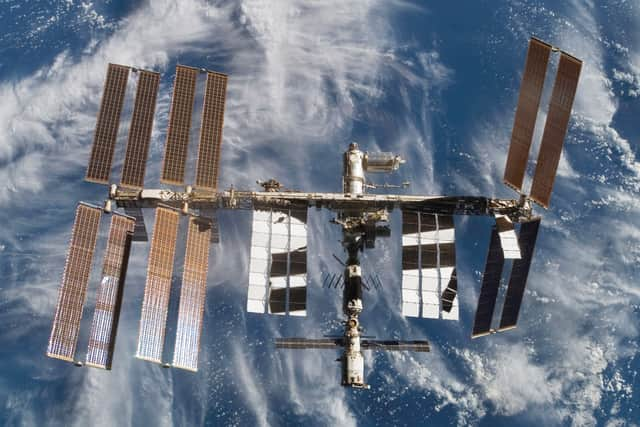International Space Station: third coolant leak in 10 months prompts investigation
and live on Freeview channel 276
A third leak has been detected on the International Space Station (ISS), as scientists look for an answer. The leak is the third one in less than a year on a Russian-controlled segment as the Russian space agency, Roscosmos, confirmed the problem came from a backup coolant system used to regulate the temperature in its Nauka module - which has been operating since 2021. Both Nasa and Roscosmos say the seven-strong crew are not in danger and there was no impact on the main thermal control system. The leak was reported on Monday at around 5pm UK time, when Nasa told one of its astronauts to look for what the ground team called "flakes".


“Hi, we’re seeing flakes outside, we need a crew to go to the cupola, we think windows five or six, and confirm any visual flakes,” an official said to the astronauts. "There's a leak coming from the radiator on MLM," replied NASA astronaut Jasmin Moghbeli, referring to the Nauka module in the Russian segment. The Nauka module of the Russian segment of the ISS has suffered a coolant leak from the external (backup) radiator circuit, which was delivered to the station in 2012,” Russian space agency Roscosmos said on Telegram, adding temperatures remained normal in the affected unit.
Advertisement
Hide AdAdvertisement
Hide AdThe news comes after three astronauts returned to Earth last month after being stuck in space for just over a year.
A Nasa astronaut and two Russian cosmonauts landed in a remote area of Kazakhstan after descending in a Soyuz capsule created as a replacement after their original spacecraft was hit by space junk and lost all its coolant while docked to the ISS. A similar leak in mid-February also affected the Russian Progress MS-21 cargo ship, which had been docked to the ISS since October 2022. The ISS was launched in 1998, and Nasa hopes to retire it in 2030.
Comment Guidelines
National World encourages reader discussion on our stories. User feedback, insights and back-and-forth exchanges add a rich layer of context to reporting. Please review our Community Guidelines before commenting.
